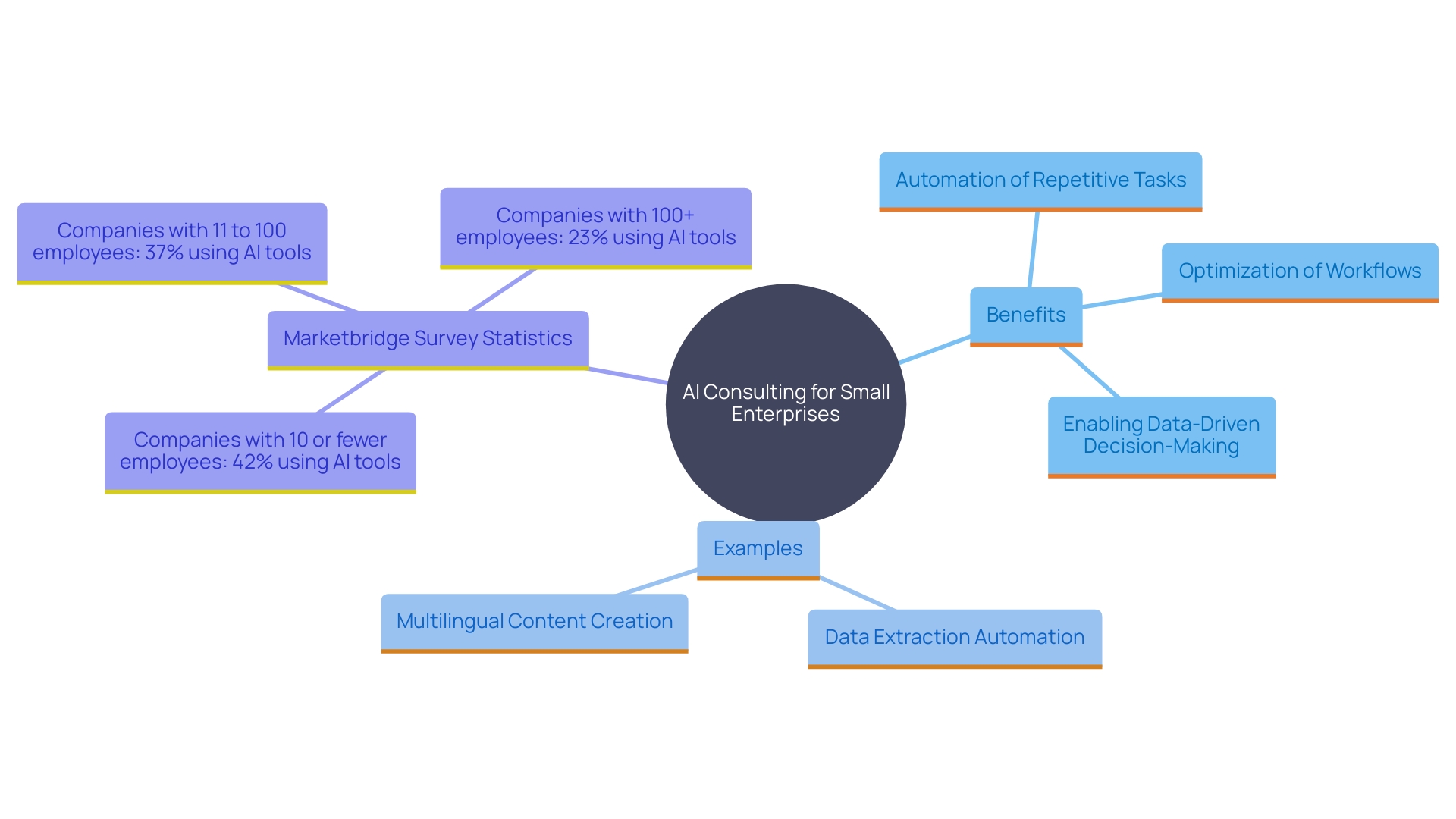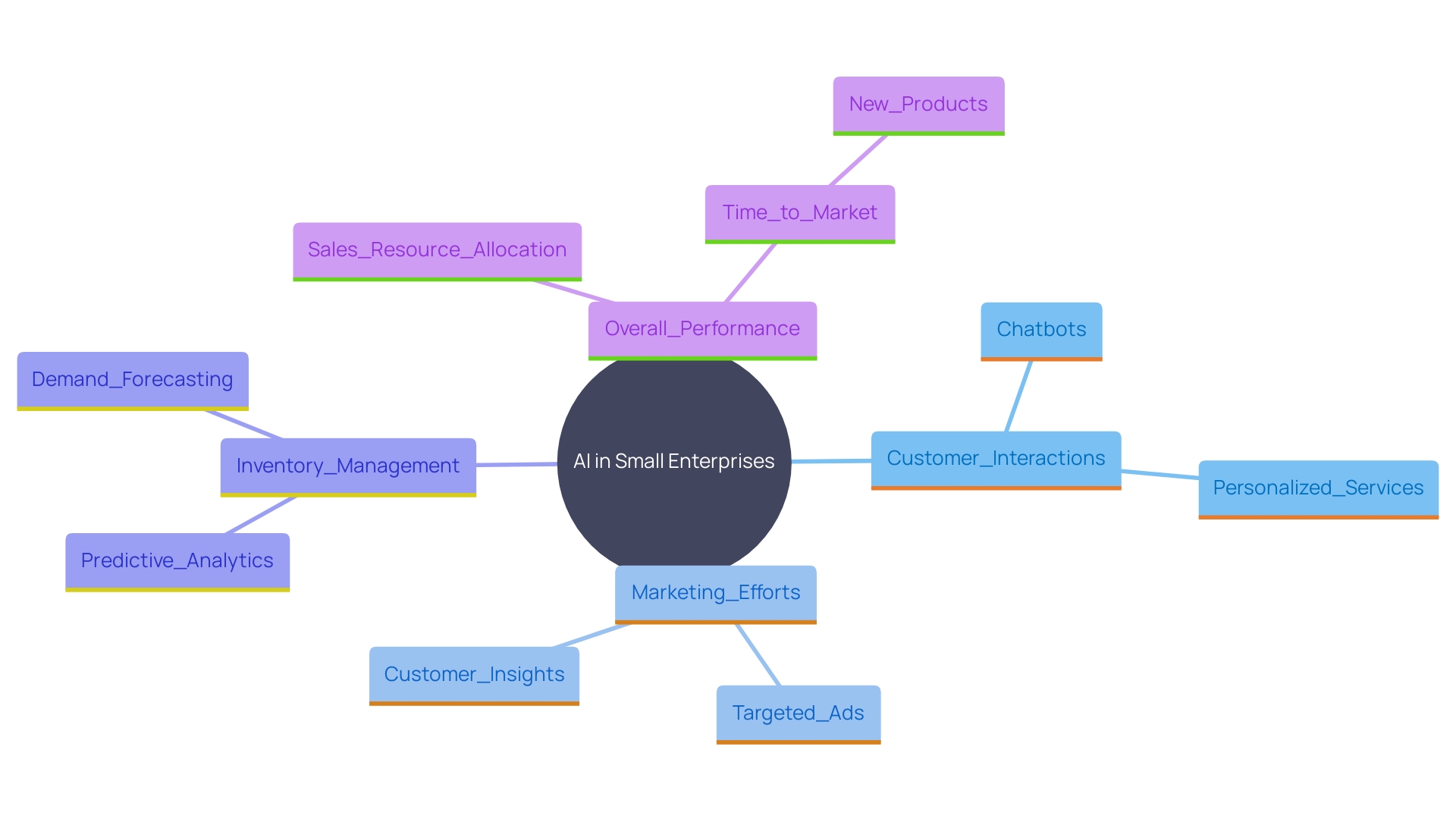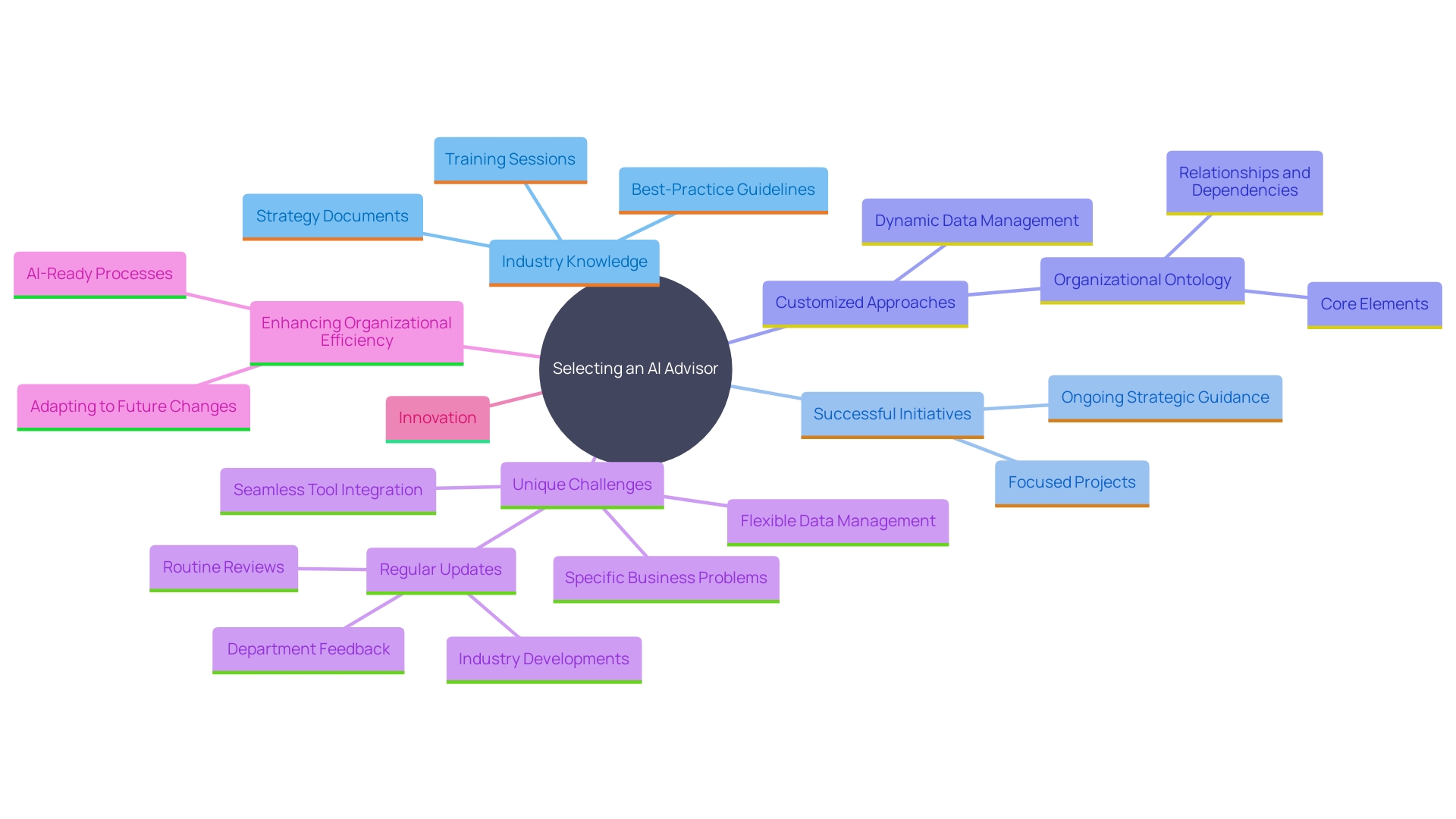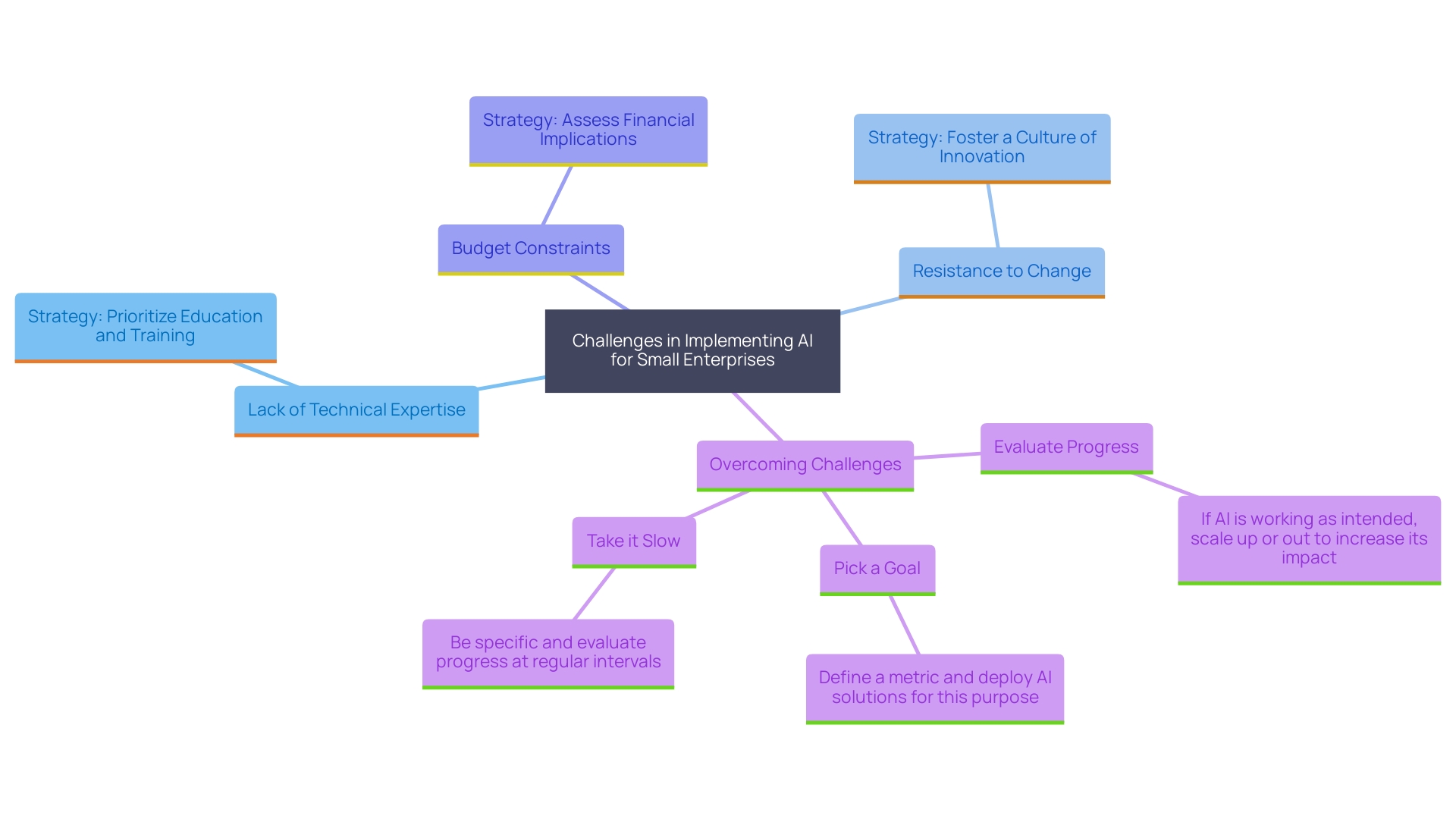Introduction
Artificial Intelligence (AI) consulting is rapidly becoming a game changer for small businesses seeking to enhance operational efficiency and stay competitive in an increasingly digital marketplace. By automating repetitive tasks, optimizing workflows, and enabling data-driven decision-making, AI consulting provides tailored solutions that align with specific business needs, ensuring a higher return on investment. This transformative technology not only streamlines processes and reduces human error but also frees up valuable resources, allowing employees to focus on more strategic projects.
In a world where time and money are critical, leveraging AI tools is essential for small businesses aiming to scale operations efficiently, personalize customer interactions, and gain a competitive edge. This article explores the manifold benefits of AI consulting for small businesses, delves into key areas where AI can drive significant improvements, and offers guidance on selecting the right AI consultant to navigate common adoption challenges.
Benefits of AI Consulting for Small Businesses
AI consulting can dramatically transform operational efficiency for small enterprises by automating repetitive tasks, optimizing workflows, and enabling data-driven decision-making. Utilizing AI technologies enables organizations to streamline processes, reduce human error, and allocate resources more effectively. Consulting services offer tailored solutions that fit specific business needs, ensuring a higher return on investment and better alignment with market demands.
For instance, AI can automate tedious tasks like extracting data from numerous documents, freeing up employees for more strategic projects, as seen in a case where an engineering team automated data extraction, providing greater overall value to the company. Moreover, AI assists in scaling operations effectively, as noted by Annette Reuther, who described how AI-enabled multilingual content creation streamlined processes for her team.
A recent Marketbridge survey found that 52% of C-suite executives and marketing leaders recognize Ai's role in deploying marketing and sales resources more cost-effectively and personalizing customer interactions. In our economy, where time and money are critical, AI tools can significantly enhance both, making them essential for small enterprise growth and competitive advantage.

Key Areas Where AI Can Benefit Small Businesses
Small enterprises can leverage AI across various functions to drive efficiency and growth. For instance, AI-powered chatbots can revolutionize customer service by handling routine inquiries, thereby allowing human agents to focus on more complex issues. Based on a Marketbridge survey, 52% of C-suite executives and leaders in promotion observed that AI assists considerably in allocating sales resources more economically. Furthermore, predictive analytics can optimize marketing strategies by analyzing large datasets to uncover patterns and trends, assisting organizations in making strategic decisions.
AI also offers substantial benefits in inventory management. By predicting future demand, AI can ensure optimal stock levels, minimizing costs while preventing shortages. This is crucial for maintaining a competitive edge in today’s fast-paced commercial environment. For example, the Forrester study highlights that 24% of businesses saw a reduction in time to market for new products by 16% to 20% after implementing AI tools like Copilot, underscoring the technology’s role in accelerating innovation and enhancing market agility.
Real-world applications, such as Holiday Extras' use of ChatGPT Enterprise, illustrate how AI can support innovation and creativity across an organization. This travel extras provider has successfully integrated AI to handle multilingual marketing tasks and scale customer support operations.
In addition, AI’s role in performance optimization cannot be overstated. By analyzing historical data, AI can provide actionable insights to improve productivity, reduce costs, and increase revenue. This proactive approach enables organizations to anticipate potential issues and address them before they become problems, thus ensuring smoother operations and better financial management.
In summary, AI empowers small enterprises to enhance customer interactions, streamline marketing efforts, and optimize inventory management, all while driving significant improvements in efficiency and customer satisfaction.

Choosing the Right AI Consultant for Your Small Business
Selecting an AI advisor requires a comprehensive assessment of multiple essential elements including industry knowledge, a demonstrated history of successful initiatives, and the tailored needs of the organization. Look for consultants who can provide a customized approach, offering clear, actionable strategies that align with your goals. It's vital to select consultants who can demonstrate concrete results from past engagements, ensuring they have the capability to deliver on their promises. Creating a cooperative connection with an advisor who understands the unique difficulties encountered by minor enterprises is essential. This ensures that AI solutions are seamlessly integrated, thereby enhancing efficiency and driving innovation. AI consulting services can help address specific challenges by identifying and overcoming hurdles such as data quality issues and skill gaps, ultimately making your organization more agile and informed. In today's economy, where time and money are critical, leveraging AI technology can significantly streamline operations, improve customer experience, and drive growth.

Addressing Common Challenges in AI Adoption
Implementing AI solutions can be particularly challenging for limited enterprises due to several factors, including a lack of technical expertise, resistance to change, and budget constraints. For instance, companies like Lindy have faced significant hurdles in integrating a wide network of apps and services to enable their AI assistants to perform tasks effectively. Developing these integrations from scratch required extensive resources and time, threatening to delay their market entry by up to a year.
To address these obstacles, small businesses should prioritize education and training for their staff, fostering a culture of innovation. Annette Reuther, Head of Growth (Europe), emphasizes the significance of information fluency within organizations, as evidenced by Holiday Extras' dependence on dashboards and metrics. Making sure that staff, irrespective of their technical experience, are at ease with analysis can greatly facilitate the shift to AI-powered operations.
Financial implications must also be carefully assessed. A survey by Hiscox found that 75% of minor enterprises plan to implement AI within the next two years, despite potential budget limitations. Leaders in AI adoption are better at determining the right advice and frequency of its provision, with 85% of leaders understanding these aspects compared to 66% of laggard firms. Moreover, leaders typically have better data quality and permission to use it, which is crucial for effective AI deployment.
By proactively addressing these challenges, small businesses can leverage AI to enhance productivity and maintain a competitive edge. As Neil Hare, President of GVC Strategies, notes, exploring AI tools is essential in an economy where time and money are critical. Investing in AI readiness now will lay the foundation for future competitiveness.

Conclusion
The exploration of AI consulting reveals its transformative potential for small businesses striving for operational efficiency and competitive advantages. By automating repetitive tasks and optimizing workflows, AI not only reduces human error but also enables employees to focus on more strategic initiatives. The tailored solutions provided by AI consulting ensure a higher return on investment and alignment with specific business needs, making it an invaluable asset in the current digital landscape.
Key areas where AI can drive significant improvements include customer service, marketing strategies, and inventory management. The integration of AI-powered chatbots enhances customer interactions, while predictive analytics aids in decision-making by revealing market patterns. Moreover, AI's ability to optimize inventory management and accelerate product development highlights its critical role in maintaining a competitive edge.
Real-world applications, such as the successful use of AI by Holiday Extras, underscore the technology's capacity to foster innovation and improve efficiency across various business functions.
Selecting the right AI consultant is essential for realizing these benefits. A thorough evaluation of industry expertise, proven success, and a tailored approach is necessary to ensure that AI solutions are effectively integrated into existing operations. Addressing common challenges in AI adoption, such as technical expertise and budget constraints, further enhances the potential for small businesses to leverage AI technology.
By prioritizing education, fostering a culture of innovation, and proactively tackling these obstacles, small businesses can position themselves for sustained growth and success in an increasingly competitive environment.




